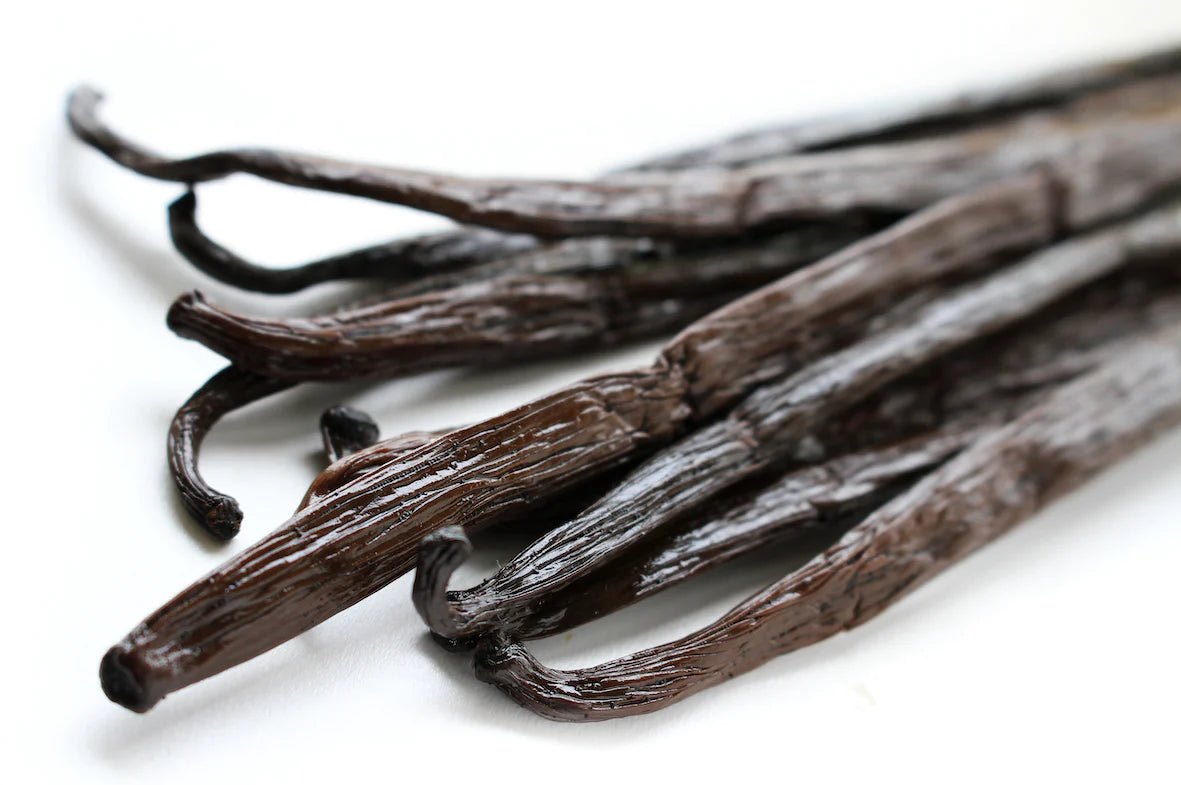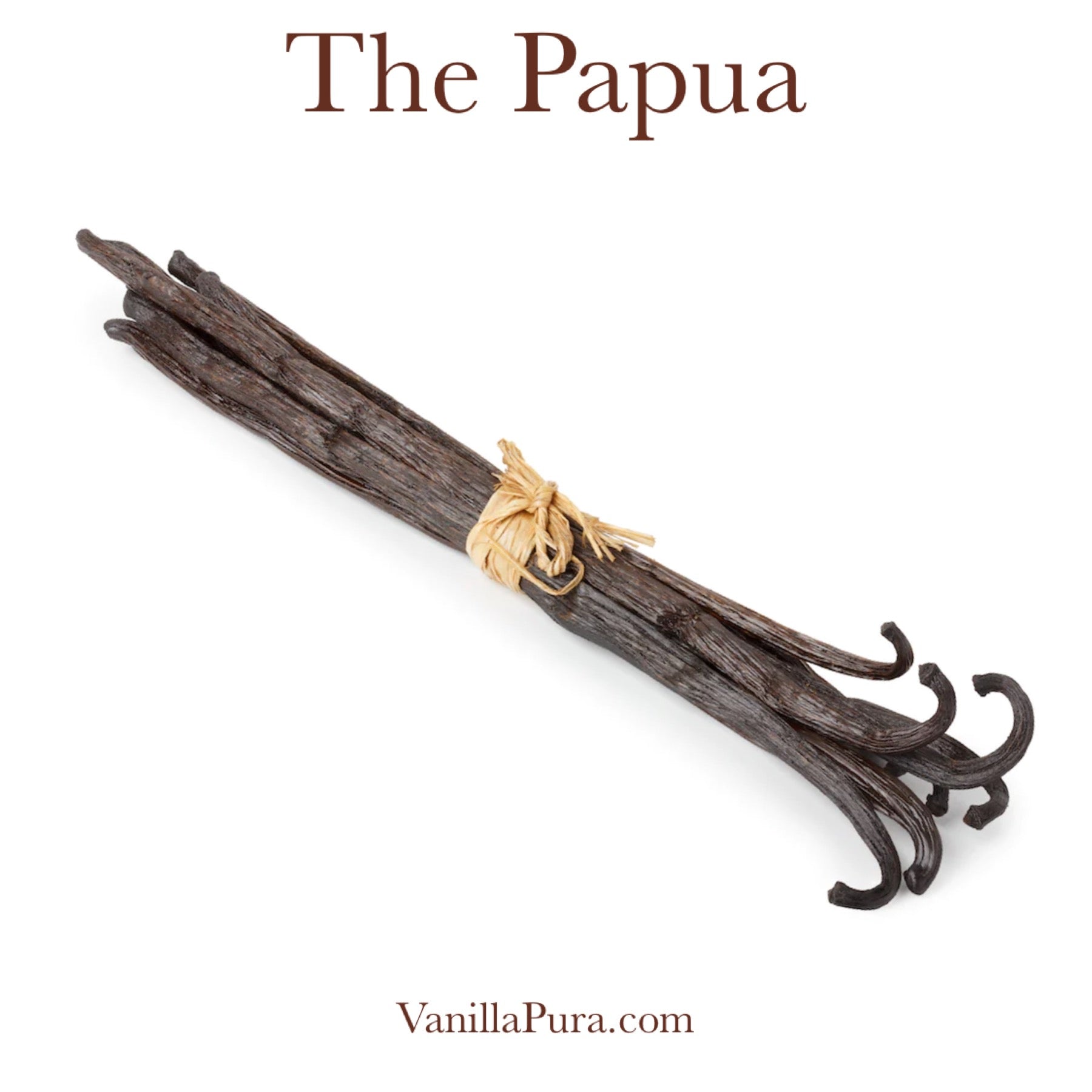Special Buy! Group Buy - The Jambi Indonesian Vanilla Beans - For Vanilla Extract & Baking (Grade A)
For a limited time, get our customer favorite Sumatra Indonesian V.planifolia Grade A vanilla beans at this very low price.
Plus...
Save up to $70 on The Papua - V.planifolia Indonesian Vanilla when you bundle them with your order. A great way to experience two different V.planifolia vanilla beans from Indonesia - one from the far west side of the country near India (Sumatra) and the other from the far east side near Papua New Guinea (Papua).
Estimated ship date: 4-8 weeks from order placement.
"Wait a little. Save a lot!"
PLUS...
If you missed this special buy, you can find our regular group buy Sumatra Indonesian V.planifolia vanilla beans by clicking here.
| Best Price: | $7.25/oz when you buy a 1kg pouch. |
| Bean Family: | V. planifolia |
| Bean Origin: | Indonesia |
| Bean Quality: | Grade A (pliable, moist, oily) |
| Aroma: | Rich, strong vanilla, hints of mocha. |
| Extract Taste: | Rich vanilla, mocha, cacao, soft notes of dried fruit. |
| Best Spirits: | Visit our spirit pairing guide for Sumatra Indonesian Vanilla Beans. |
We are sometimes able to offer one-time low prices on products in limited quantity. When we do, we offer them as "special buys". Special buy offers have their own name to help us distinguish and separate inventory. While no two vanilla beans are ever exactly the same, this "Jambi" bean was grown in the same region as our regular Sumatra Indonesian bean but offered now at a lower price and with limited availability. If it's in stock, buy it quickly as it will stock out.
VanillaPura's Jambi V.planifolia Indonesian Vanilla Beans are of the highest quality and have a rich, dark aroma. This particular vanilla bean originates from the Sumatra region, which is one of the western most regions of Indonesia, near India, Sri Lanka and an ocean (the Indian Ocean) away from Madagascar. It is the largest island in Indonesia and the 6th largest island in the world. While most Indonesian coffee is grown in Sumatra including Arabica coffee, vanilla beans are relatively new and much more rare, making these vanilla beans difficult to obtain.

When you first open a pouch of Jambi Indonesian vanilla beans, your nose will be met with floral notes that are usually typical with V.tahitensis vanilla beans, though these are V.planifolia beans like Madagascar and Mexican. Behind the floral scent you will notice ripe plums, raisins and bold, earthy and dark vanilla notes. As you bring an individual bean closer to your nose, the strong, earthy vanilla aroma becomes more pronounced with soft hints of mocha. Finally, after months (or even years) of extraction, your finished extract will demonstrate an extra sweet vanilla aroma as the floral scent fades somewhat into the spirit and you are left with a complex extract with enhanced vanilla sweetness underscored with scents of dried tropical fruits.
Jambi Indonesian vanilla beans are very oily with a strong vanilla scent. They typically have a higher vanillin content than all other Indonesian beans, making them ideal for vanilla sugars, homemade ice creams and other frosting and cream applications. They are usually between 5" and 7" inches long and have a dark brown color. These vanilla beans are a favorite among pastry chefs and ice cream lovers for their rich and sweet vanilla taste.
We named this special buy The Jambi, after the city of Jambi on the island of Sumatra.

(Image of one of the many farms on Sumatra near Jambi.)
VanillaPura vanilla beans are all shipped vacuum sealed for freshness and should be stored unrefrigerated in a cool, dry and dark place.
Jambi Indonesia is located ideally for vanilla cultivation within the world's "bean belt". The western geography of Indonesia (close to India) includes a soil that, for centuries, has captured the fallen fruit and fauna that now makes up its rich mineral base. That tropical vegetation is clearly present in these unique planifolia vanilla beans.
On average, there are 6-10 beans/oz depending on the moisture content of the specific batch of vanilla beans. There can be as few as 5 beans or as many as 20 beans. Pricing reflects current market conditions and will be updated as market prices change.























